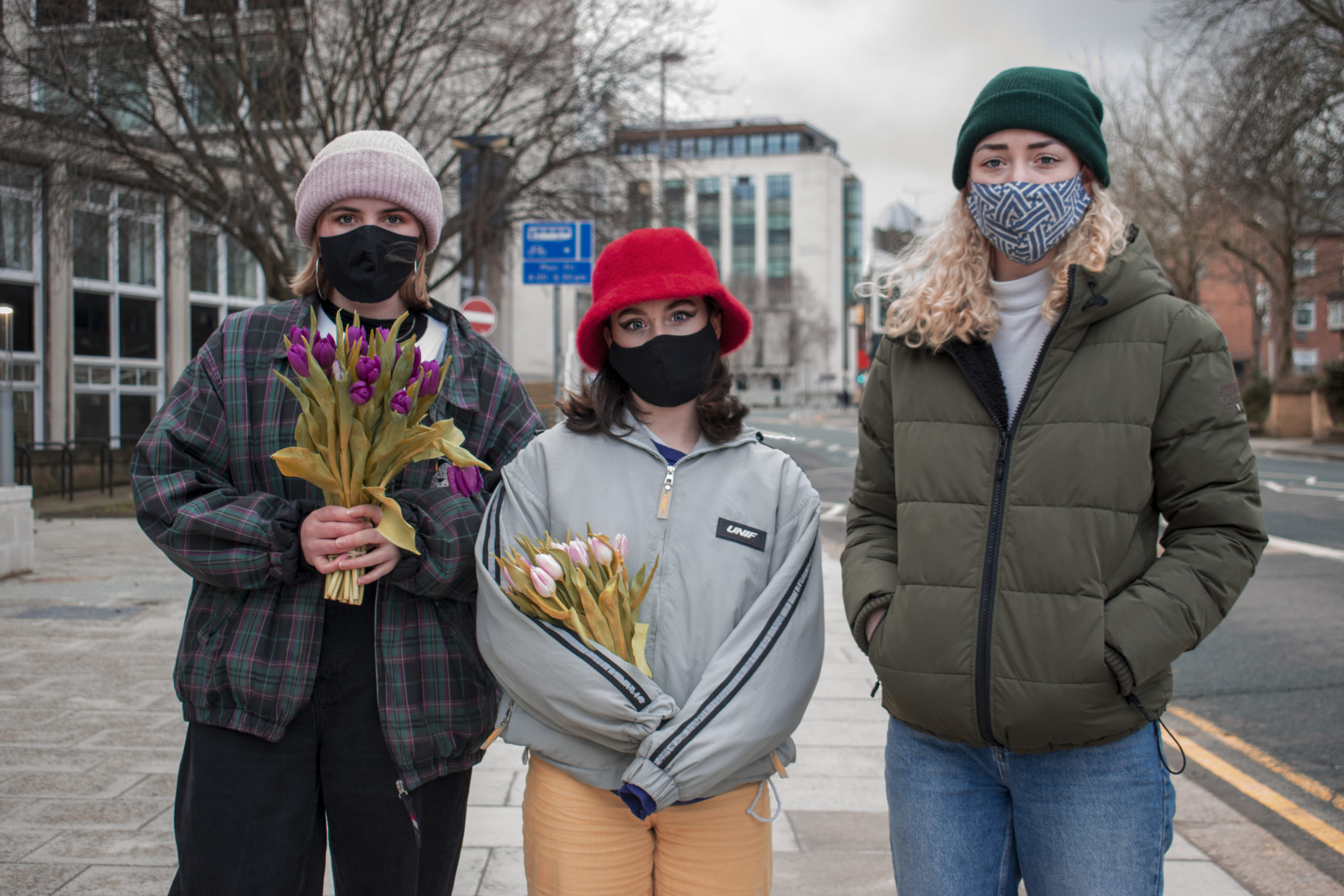After Sarah Everard was murdered, people across the country took to the streets and social media to grieve the wider issue of violence against women and marginalised genders. Zahra Iqbal and Maariyah Fulat report on Reclaim the Night Leeds’ virtual vigil.
All around Leeds, candles were lit, flowers left and people held their loved ones close as the nation remembered not just Sarah Everard, but the thousands of women who have been sexually assaulted, attacked and murdered.
Sarah Everard was last seen on 3 March as she was walking home from a friend’s house at 9pm near Clapham Common in London. Since then, Wayne Couzens (48) has been charged with her murder and kidnap. Her disappearance coincided with a report published by The Guardian that found 97% of women aged between 18 and 24 had been sexually harassed.
Following the case, and the statistics published by The Guardian, social media erupted and was full of calls for protests, vigils and women sharing their own stories of assault and harassment.
Due to this overwhelming response, Reclaim the Night organised a series of vigils up and down the country so people could pay their respects. Launched in Leeds in 1977 in part to respond to the Yorkshire Ripper murders, the importance of the movement has resonated since, particularly in the last week. However, due to coronavirus restrictions and West Yorkshire Police guidelines, the Reclaim the Night Leeds physical vigil outside Parkinson Building was replaced with a livestream on social media.
This did not stop hundreds of flowers, cards, notes and candles being left on the steps to honour the death of Sarah and every woman that has suffered at the hands of sexual violence.
Rihannon Griffiths organised the Leeds vigil and hosted the livestream alongside a plethora of speakers and campaigners such as Roz Weaver from SARSVL, George Sykes from LUU Abuse Awareness, Miranda Arieh from Womens Lives Matter, Cllr Al Garthwaite, Siza a student poet, Amy Randles and finally, Amy Hobbs.
Griffiths told the Gryphon “This vigil as much as it is for Sarah is also for all the other people and women across the UK.”
Cllr Al Garthwaite, also attending, commented “As we said at first March in 1977: however we dress, whatever we wear, yes means yes, no means no.”
Elsewhere in the country, crowds of people gathered to grieve the loss of Everard and to raise awareness of the wider context of abuse faced by women and marginalised genders. Attendees of the London vigil organised by Sisters Uncut described the scene as peaceful, until police officers intervened, throwing women to the ground for merely paying their respects.
The message across the vigils in Leeds and beyond has been clear and simple: women should have the right to walk home, be safe and not terrified of male-based violence. Women should not have to be careful of what they wear, take longer routes or be hyper-vigilant of their surroundings.
As the pandemic lurches on, the ongoing issue of violence against women and marginalised genders must not be ignored.
Image Credits: Maariyah Fulat









